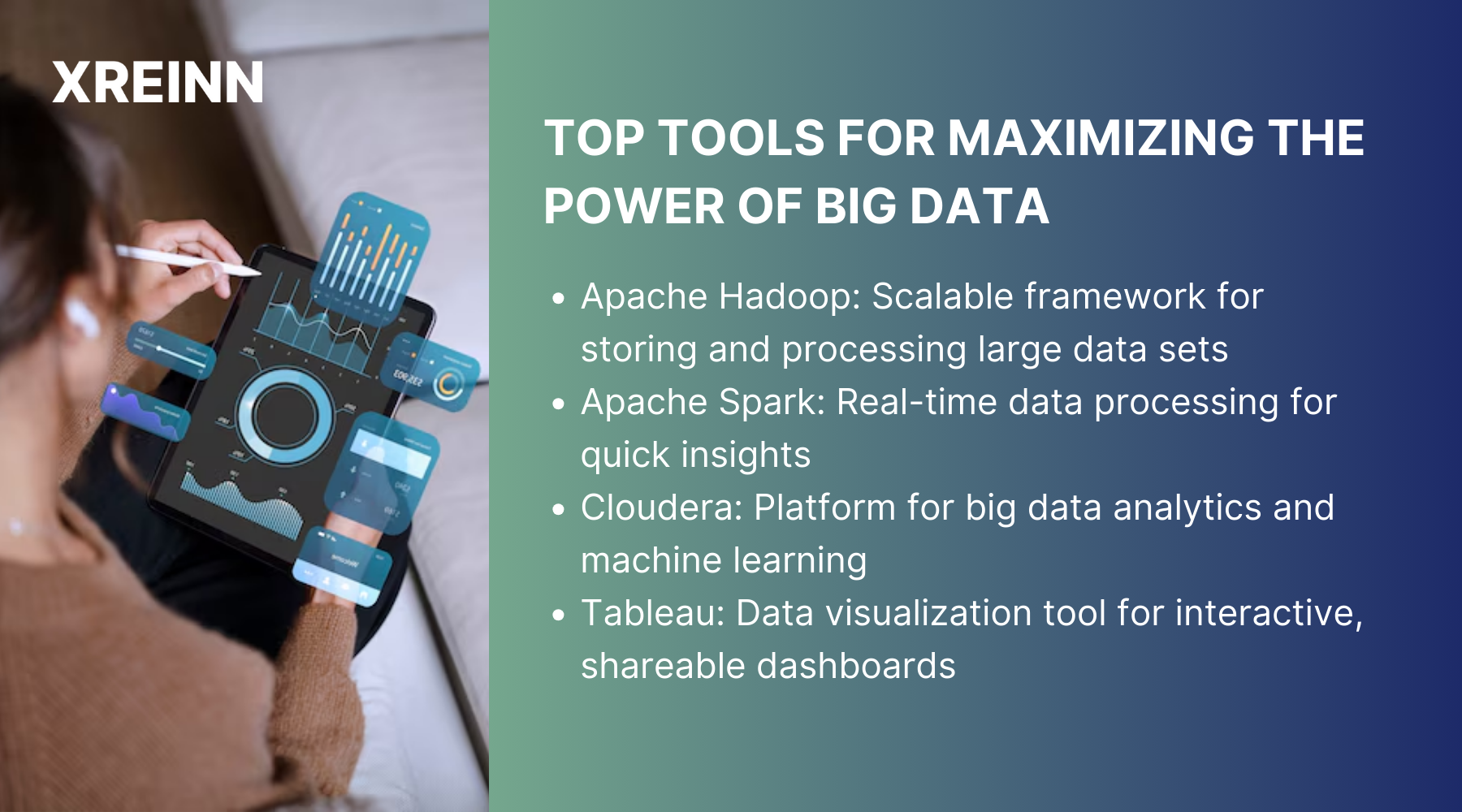Data Analytics
Achieving Business Growth Through Big Data Analytics: Key Techniques and Tools
Jul 06, 2024
Big Data Analytics has become essential for businesses looking to gain insights, drive growth, and stay competitive. By using the right tools, technologies, and strategies, companies can fully change the potential of their data.
The landscape of big data, from predictive analytics to real-time data processing, offers many opportunities for innovation and efficiency. Changing these capabilities can lead to more informed decision-making, improved customer experiences, and increased operational efficiency.
This insightful overview addresses the essential aspects of Big Data Analytics, offering practical insights into the tools, technologies, and strategies that can help your business thrive.
What is Big Data Analytics
Big Data Analytics refers to the process of examining large and varied data sets to uncover hidden patterns, correlations, and insights. This data-driven approach allows businesses to make informed decisions and predict future trends. By analyzing big data, you can identify customer preferences, optimize operations, and improve overall business performance.
The key components of Big Data include volume, velocity, variety, and veracity, which highlight the vast amount of data generated at high speed, in different formats, and with varying levels of accuracy.
Essential Big Data Tools
To utilize the power of Big Data, it's crucial to use the right tools. Here are some of the most essential ones:

Apache Hadoop
Apache Hadoop is an open-source framework that allows you to store and process large data sets across clusters of computers. It is highly scalable and cost-effective, making it a popular choice for managing big data. Businesses use Hadoop to analyze data in real time, providing valuable insights that drive growth. Its strong ecosystem supports a wide range of applications and industries
Apache Spark
Apache Spark is known for its speed and efficiency, Apache Spark processes data in real-time, enabling faster decision-making. Spark's ability to handle both batch and streaming data makes it ideal for applications requiring quick insights, such as financial analysis and fraud detection. Its strong API support for various programming languages further enhances its versatility.
Cloudera
Cloudera is a leading enterprise data cloud company, providing a robust platform for big data analytics and machine learning. It offers comprehensive solutions for data management, processing, and analysis, enabling organizations to capitalize on the power of their data across on-premises and cloud environments. Cloudera's advanced tools and technologies help businesses drive insights, optimize operations, and achieve growth.
Tableau
Tableauis a powerful data visualization tool that helps you create interactive and shareable dashboards. With Tableau, you can transform complex data into easy-to-understand visual insights, facilitating better decision-making. Additionally, Tableau integrates seamlessly with various data sources, enhancing its flexibility and utility in diverse business environments
Big Data Technologies
In addition to tools, several technologies play an important role in Big Data Analytics:
Machine Learning: Machine learning algorithms analyze data and learn from it, enabling predictive analytics. By applying machine learning, businesses can forecast trends, personalize customer experiences, and improve operational efficiency.
Cloud Computing: Cloud computing provides scalable and cost-effective solutions for storing and processing big data. Platforms like Amazon Web Services (AWS), Google Cloud, and Microsoft Azure offer a range of services tailored for big data analytics, allowing you to scale your operations as needed
IoT (Internet of Things): IoT devices generate vast amounts of data from various sources, such as sensors and smart devices. By integrating IoT with big data analytics, you can gain real-time insights into operations, and improve product quality and customer experiences.
Blockchain: Blockchain technology ensures secure and transparent data transactions. It is particularly useful in industries requiring high data integrity, such as finance and healthcare. By incorporating blockchain, businesses can enhance data security and trust.
Big Data Strategies for Business Growth
To maximize the benefits of Big Data Analytics, it's essential to adopt effective strategies:
Data-Driven Decision Making: By changing data insights, you can make informed decisions that align with your business goals. Data-driven decision-making helps you identify opportunities, reduce risks, and optimize performance.
Customer Insights: Understanding your customers is key to delivering personalized experiences. Big Data Analytics enables you to analyze customer behavior, preferences, and feedback, allowing you to tailor your products and services to meet their needs.
Market Analysis: Analyzing market trends and competition is crucial for staying ahead. Big Data Analytics helps you identify emerging trends, assess market demand, and develop strategies to gain a competitive edge.
Operational Efficiency: Streamlining operations can significantly reduce costs and improve productivity. By analyzing operational data, you can identify bottlenecks, optimize processes, and improve overall efficiency.
Implementing Big Data Solutions
Implementing Big Data Analytics requires a strategic approach:
Setting Clear Objectives and Goals: Before diving into big data, it's essential to define what you aim to achieve. Clear objectives guide your analytics efforts and ensure alignment with business goals.
Building a Skilled Data Analytics Team: A successful big data strategy relies on a team of skilled professionals, including data scientists, analysts, and engineers. Investing in talent ensures you have the expertise to analyze and interpret data effectively.
Investing in the Right Tools and Technologies: Choosing the right tools and technologies is critical for effective data analysis. Consider factors such as scalability, ease of use, and integration capabilities when selecting your big data solutions.
Ensuring Data Quality and Security: High-quality data is the foundation of reliable insights. Implement measures to ensure data accuracy, consistency, and security. Regularly clean and validate your data to maintain its integrity.
Challenges and Solutions
While Big Data Analytics offers numerous benefits, it also presents several challenges that organizations must address. Data integration is another significant challenge, as combining data from multiple sources can be complex. Employing advanced data integration tools and techniques can help ensure seamless data flow and consistency across systems.
Additionally, the demand for skilled data professionals often exceeds supply, creating skill gaps within organizations. Investing in training and development programs is essential to bridge these gaps and build a capable data analytics team. Cost management also poses a challenge, as balancing investments in big data technologies while achieving a return on investment can be tricky. To reduce this, organizations should start with small projects, measure outcomes, and scale up as they gain confidence in their analytics capabilities.
Conclusion
Big Data Analytics holds immense potential for driving business growth. By understanding the tools, technologies, and strategies involved, you can uncover valuable insights, improve decision-making, and gain a competitive edge. Adopt Big Data Analytics to transform your business operations and achieve sustainable growth.

Data Analytics
Jun 27, 2024Master key concepts in data analytics with practical tips to enhance decision-making and achieve success in your projects and professional growth

Data Analytics
Jul 01, 2024Learn the essential stages of the data analytics workflow to turn your data into valuable business insights and drive growth.

